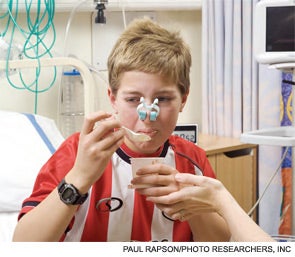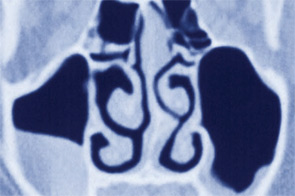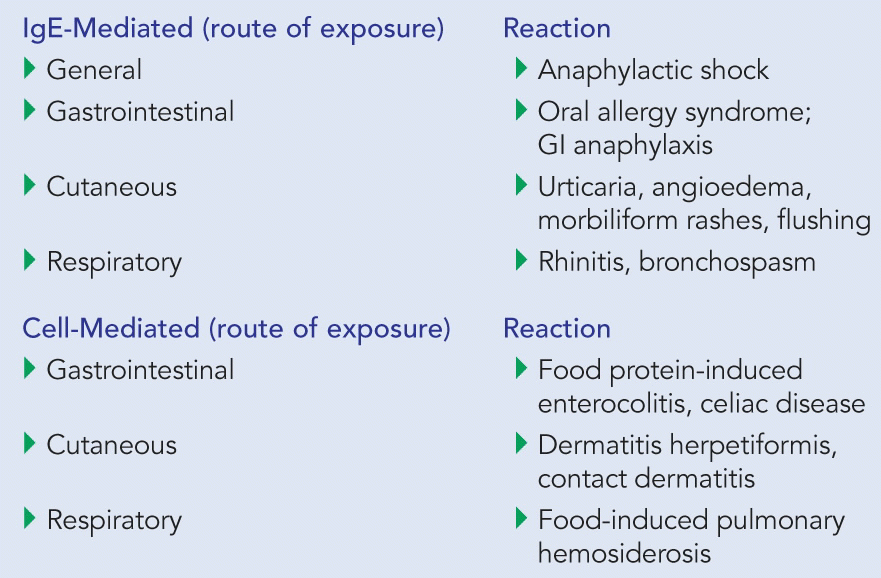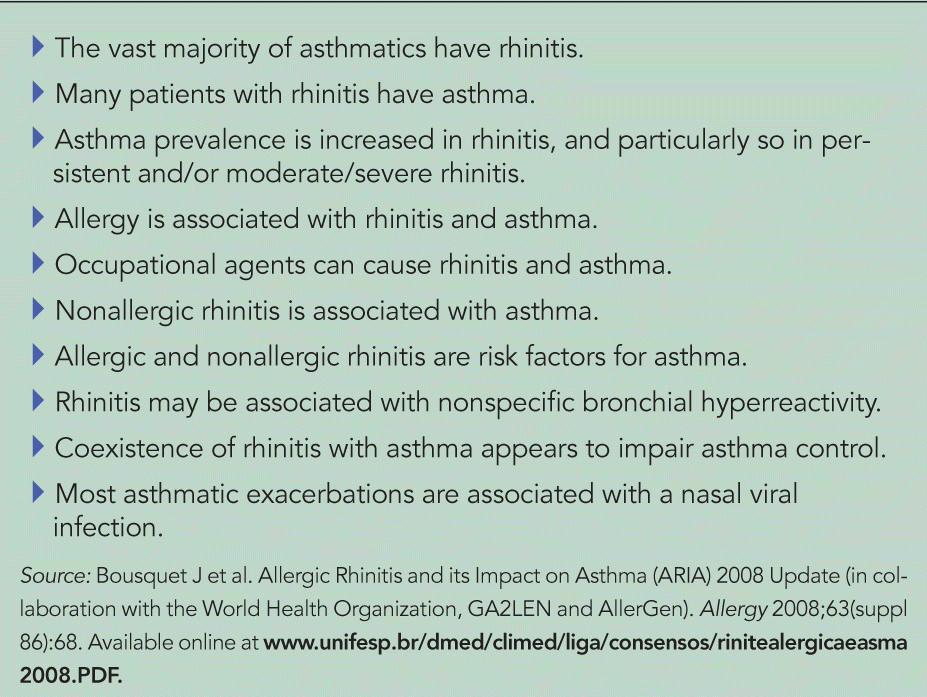Allergic rhinitis among the elderly poses a particularly difficult diagnostic challenge for the otolaryngologist. As people age, they undergo immunosenescence. The thymus, which produces T cells against new invaders, atrophies markedly after adolescence, and this decline results in a less robust immune response to bacteria, viruses and presumably allergens (J Pathol. 2007;211(2):144-156). Consequently, physicians have assumed that allergies should decline as people age.

The End of the Food Challenge Test?: Researchers seek new ways of diagnosing food allergy
New ways of diagnosing food allergies are on the horizon, with allergy experts hoping that it might be possible one day for many patients to avoid the traditional food challenge test (FCT).
A Patient Experiment
Berrylin J. Ferguson, MD, FACS, FAAOA, associate professor of otolaryngology and director of the Division of Sino-Nasal Disorders and Allergy at the University of Pittsburgh School of Medicine in Pittsburgh, Pa., uses the following form to help determine which allergy treatments will work best for each patient.
Treating Allergic Rhinitis: A Patient Experiment
Berrylin J. Ferguson, MD, FACS, FAAOA, associate professor of otolaryngology and director of the Division of Sino-Nasal Disorders and Allergy at the University of Pittsburgh School of Medicine in Pittsburgh, Pa., uses the following form to help determine which allergy treatments will work best for each patient.

Upward Trend: What’s to account for the increased prevalence of allergic rhinitis?

Update on Diagnosis and Management of Food Allergies
With the rising prevalence of food allergies and their associated potentially fatal consequences, understanding the pathophysiology of food allergies along with their diagnosis and treatment remains a critical part of otolaryngologic practice.

Inclusion of Asthma in Otolaryngologic Clinical Practice
For otolaryngologists, who are often the first-line of defense in diagnosing and treating many common respiratory ailments, differentiating the potential culprits behind sneezing, wheezing, stuffy nose, heavy chest, and chronic cough demands an ever-growing need to recognize and identify underlying conditions that include allergies and asthma.

Allergy Research Gets High Evidence-Based Medicine Rankings
Several treatments for allergy-related disease have high-quality evidence to support them, according to panelists at a seminar in Chicago at the annual meeting of the American Academy of Otolaryngology-Head and Neck Surgery (AAO-HNS), which focused on evidence-based medicine as the model applies to allergy.

Beijing’s Air Quality Affects Olympic Athletes’ Performance
Otolaryngologists, immunologists, and other physicians specializing in asthma, allergies, and additional respiratory disorders watched the 2008 Beijing Olympics with bated breath.
Eosinophils Are the Villains in Sinus Inflammation
Eosinophils are the bane of nasal mucosa, and no one knows better than Fredrick A. Kuhn, MD, of the Georgia Nasal and Sinus Institute in Savannah, GA-a region where it is not uncommon for otolaryngologists to see patients presenting with polyps.